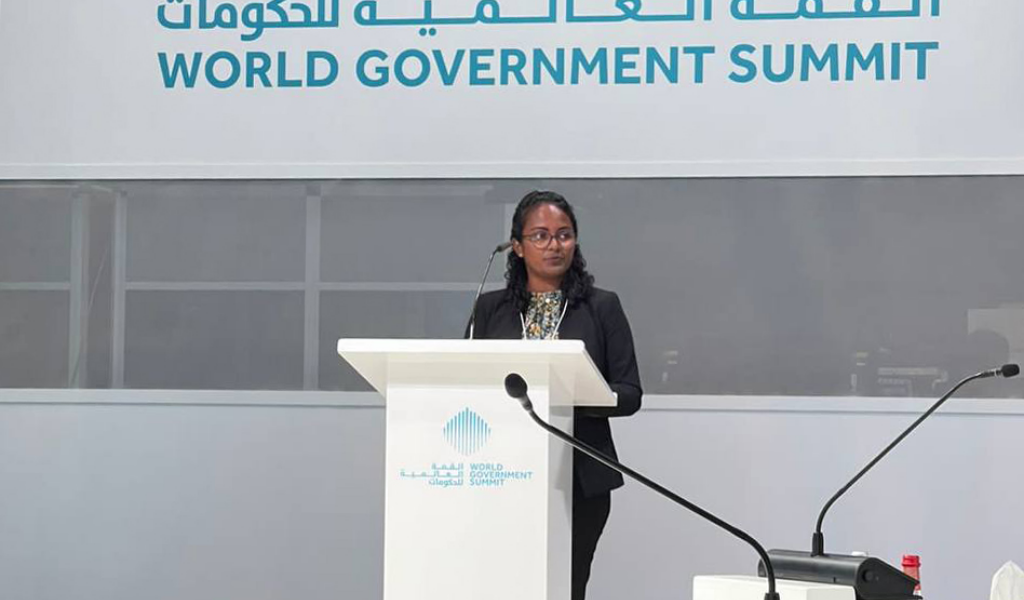
State of The Maldives Spoken About at the World Government Summit
This Wednesday, Minister of Environment, Climate Change, and Technology, Aminath Shauna delivered remarks at the World Government Summit. A high-level Maldivian delegation, led by Vice President Faisal Naseem is currently in Dubai, United Arab Emirates (UAE) to attend the Summit.
In Minister Shauna’s remarks, she highlighted the challenges faced by the Maldives in providing high-quality healthcare and education because it the country is very geographically scattered. She said that, because there are no economies of scale, it was critical to building a resilient country that could adapt to climate change. Minister Shauna reiterated that resilience was about investing in people and preparing younger generations for future impact.
Minister Shauna noted the administration’s efforts to make education more accessible and highlighted the free degree program which has already provided higher education options for nearly 10,000 students. The Minister recalled how Maldivian children leaving secondary school did not have access to affordable higher education as recently as two years ago. She also underlined the student breakfast program that was implemented by the administration after it became evident that many children were skipping breakfast which was affecting their learning capabilities.
The Minister identified a lack of focus on quality as an urgent problem and said that not enough analyses were being done to identify whether the appropriate skills required to meet new challenges were being fostered in younger generations. She highlighted the need for support and collaboration from partners in an effort to reach the next level.
Minister Shauna also reflected on how Covid-19 was a significant turning point for healthcare provision in the Maldives. She said that the government’s decentralization policy protected the Maldives from major pitfalls during the global pandemic as the government had already begun decentralizing healthcare services before the pandemic. Elaborating on healthcare services, the Minister stated that the Maldives had attained 90 percent vaccination coverage; however, she also noted that chronic non-communicable diseases (NCDs) were on the rise in the country and that it was an issue that needed to be addressed urgently.
In her speech, Minister Shauna noted how reliant the world, and the Maldives had become on technology for development and highlighted the administration’s transformation process to a digital identification system. She said that technology was required to establish a resilient society and that it extended beyond digital education.
The Minister said that technology should be utilized in adaptation strategies to monitor what was happening to Maldives’ coast and coral reefs by using drone and satellite technology to gather data and then utilize this information to make evidence-based decisions. She added that the Maldives was an excellent area to test innovative technologies that could be scaled up in the future since the Maldives is a small state.